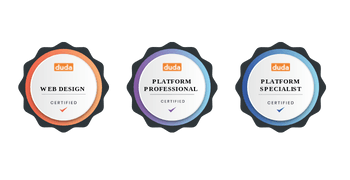Improve Your Website
How can I improve my website?
In today's digital age, having a well-designed and user-friendly website is crucial for any business or organization. However, creating a website is just the first step. In order to stay ahead of the competition and attract more visitors, you need to continuously improve and update your website. From freshening up your content to optimizing page speed and design, there are numerous ways to enhance your website's performance. In this comprehensive guide, we'll share 10 easy tricks to improve your website and boost your online presence. Whether you're a small business owner, a blogger, or a web developer, these tips will help you take your website to the next level.
Freshen the Content Regularly
One of the most important things you can do to improve your website is to freshen up the content regularly. This means adding new blog posts, updating existing content, and ensuring that everything on your website is up to date. Not only will this keep your website relevant and engaging for your visitors, but it will also help improve your search engine rankings. By regularly updating your website with fresh, relevant content, you'll be signaling to search engines that your website is active and relevant.
Make Sure It Has a Call to Action
Every page on your website should have a clear call to action. This is a specific action that you want your visitors to take, such as filling out a contact form, signing up for a newsletter, or making a purchase. By including a call to action on every page, you'll be guiding your visitors towards the actions that are most important to your business.
Add Contact Information Prominently
Your website should make it easy for visitors to get in touch with you. This means prominently displaying your contact information, including your phone number, email address, and physical address. If you have a physical location, be sure to include a map and directions to make it easy for visitors to find you.
Add Images and/or Video
Images and videos can help make your website more engaging and visually appealing. They can also help convey information more effectively than text alone. Be sure to use high-quality images and videos that are relevant to your business and your target audience. If you don't have your own images and videos, consider using stock images or hiring a professional photographer or videographer.
Improve Page Speed and Mobile Responsiveness
Page speed and mobile responsiveness are two important factors that can impact your website's usability and search engine rankings. If your website takes too long to load, visitors may become frustrated and leave. Similarly, if your website is not mobile-responsive, it may be difficult for visitors to navigate and use on mobile devices. To improve your website's page speed, consider optimizing your images, using a content delivery network, and minimizing the use of scripts and plugins. To ensure your website is mobile-responsive, consider using a responsive design, which will automatically adjust the layout of your website to fit different screen sizes.
Target Audience and Target Keywords
To improve your website, it's important to understand your target audience and the keywords they use to find your business. By targeting the right keywords, you can improve your search engine rankings and attract more qualified traffic to your website. Similarly, by understanding your target audience, you can create content and design your website in a way that resonates with them and meets their needs.
10 Easy Tricks to Update Your Tourism Website
- Update your website's design to current standards
- Use high-quality images and videos that are relevant to your business
- Make sure your website is mobile-responsive
- Optimize your website's page speed
- Use a content management system to make it easy to update your website
- Add a blog to your website and post regular updates
- Use social media to promote your website and engage with your audience
- Use email marketing to stay in touch with your customers and prospects
- Incorporate booking platform integration like NightsBridge to make it easy for customers to make reservations
- Regularly review your website analytics to see how visitors are interacting with your website and identify areas for improvement.
Improving your website is an ongoing process that requires time, effort, and a willingness to experiment and try new things. By following these tips and regularly updating your website, you can improve your search engine rankings, attract more visitors, and ultimately
Articles







